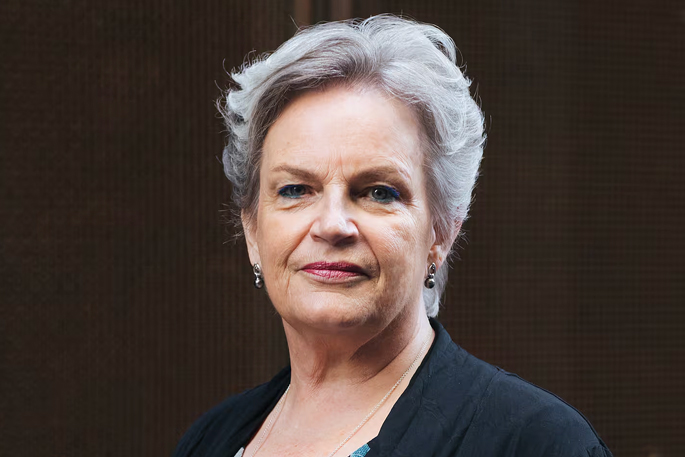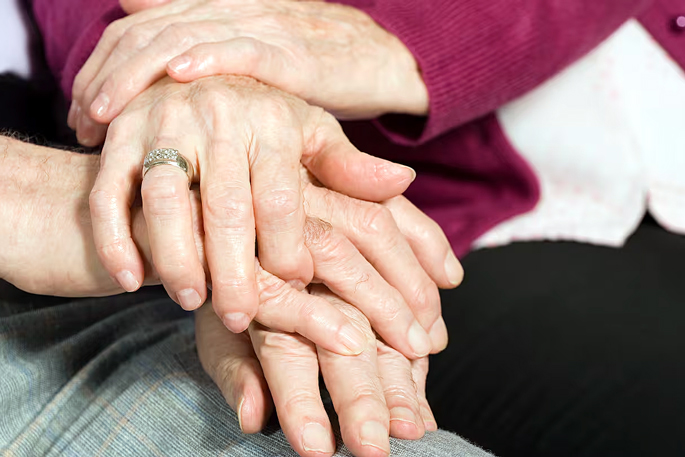A rest home and some of its staff have been asked to provide written apologies to the whānau of a man who died two weeks after being in their care.
Aged Care Commissioner Carolyn Cooper found Oceania Care Company Limited, which owns Victoria Place Rest Home in Tokoroa, breached the Code of Health and Disability Services Consumers’ Rights for respite care provided to a resident in 2019.
In Cooper’s report she said the resident, a man in his 80s, lived at home with his wife and had Parkinson’s disease, heart failure, poor hearing, blindness in one eye and recurring mini-strokes.
He and his wife, named Mr and Mrs B in the report, were both hearing-impaired and suffered from severely diminished vision.
Mr B needed assistance with mobilising, showering, toileting and dressing, and he used a walking aid.
Despite his health needs, Mr B was described by his daughter (named Mrs A in the report) as still very “with it”, intelligent, stoic and gentle.
Day One
Mr B was admitted to Victoria Place for a five-day stay as his wife needed respite care. He went to bed about 6pm.
Day Two
In the report, Mrs B said she visited her husband on the second day, and he told her he had “the most terrible night of my life”.
He had needed to use the bathroom during the night but could not see in the dark and could not find the call bell. He groped around in the dark and fell, lying on the floor for an indeterminate amount of time before pulling himselfon to the bed.
Mrs B found bruising on his head and elbows, and carpet grazes on his feet.
She said she told a nurse (RN D in the report) her husband had fallen during the night, and the nurse responded that “it was unwitnessed”.
When informed of the injuries, she said RN D replied “We don’t know that he has fallen. He could have just bumped into a doorway.”
RN D said she did not recall any conversation to this effect and would not have spoken to the wife like that, but she apologised if she had spoken that way.
The nurse assessed the man and found a lowered oxygen level, but observed he was walking well with his walking frame.
Another nurse (RN E) asked the man about headaches, blurred vision, other pain, or distress, and recorded that the man had denied all of these.
No incident or accident report form was completed, the man’s GP was not advised, a post-falls assessment was not conducted, nor was 24 hours of post-fall neurological observations as required by policy.
Mrs B said when her husband lay on the bed, he informed her that his back was sore. She said she asked for him to be transferred to hospital but RN E felt it was not necessary.
Another set of observations was taken at 4pm by RN C, who found further reduced oxygen saturation and that Mr B was short of breath . She advised him to rest with his head elevated and his breathing improved.
Day Three
Mrs B visited and said she found her husband curled in the fetal position on his bed. He was slurring slightly, she said, which usually meant he had suffered a mini-stroke, and had terrible pain in his lower back “as if some vital organ had been injured”.
After a difficult bathroom experience that left Mr B in a lot of pain, Mrs B said she told staff her husband needed help.
She said RN C replied she would “give him an anti-depressant to calm him down.” RN C denied saying this and RN E, also present, said she did not recall RN C making that statement. Mrs B said she asked for a doctor to visit but was rebuffed.
Mrs B called her daughter-in-law Mrs A, who drove to Victoria Place. When Mrs A asked for an ambulance to be called, Mrs B said there was discussion among staff about whether it was necessary.
Mrs A said if no ambulance was called she would take Mr B to the hospital herself. An ambulance was called.
Mrs B stated, “I consider that the RN and other staff member. . . acted in a callous manner in dealing with [Mr B], myself and my daughter-in-law. Their attitude was aggressive, defensive, and abusive. As we were leaving [Victoria Place], the RN said ‘See, you were right after all’. Small comfort.”
When the ambulance arrived, the crew administered oxygen to Mr B. Ambulance records state Mr B was alertalthough working quite hard to breathe. He was sweaty, pale and hypertensive, with an irregular pulse.
The pain in his back from the fall was a 9/10 on the pain scale when he moved, and the records noted bruising on his arms, legs and head.
He was admitted to hospital where his condition continued to decline. He died two weeks later, and Mrs A said most of the family did not get a chance to say goodbye to him in person.
“Mrs A said the family cannot know how things would have gone if Mr B had been kept safe by the staff at [Victoria Place] and consider that the staff involved will never appreciate the guilt the family now feel for leaving Mr B at [Victoria Place].
“Mr B never asked for much for himself, and his only wish was to be able to die at home,” the report said.
The company and staff respond
Oceania told the commission there was a lack of information in Mr B’s records which did not meet its standards. An incident report should have been completed after Mr B’s fall.
The report said Oceania had stated it “deeply regrets” the events , acknowledged the impact Mr B’s death had on his family, and apologised that he did not receive the expected standard of care.
The company accepted there were deficiencies in the care provided, in the reporting and documentation of the clinical file, and that the initial falls assessment on admission was inadequate.
Oceania accepted staff did not show respect towards Mr and Mrs B.
Victoria Place has since had changes to its management and the region is now overseen clinically by a registered nurse with previous management experience.
The nurses involved in Mr B’s care were also provided an opportunity to comment on the report.
RN E said neither Oceania’s nor the district health board’s investigations found she held any responsibility.
She worked for Oceania for a year after the incident and management never questioned her nursing competence. She said her role was to offer clinical support to staff rather than supervise the care they delivered.
RN D said she was sorry for what happened and expressed her condolences to Mr B’s family. She said she intended to improve her communication skills in the workplace and be more sensitive to the needs of her residents.
RN C did not provide a response.
The commissioner’s opinion
The commissioner, Carolyn Cooper, said there were deficiencies in the care several staff members provided to Mr B and while she was critical of those individuals, there were broader system issues at Victoria Place.
“In my view, this was poor care. Mrs B had made her concerns clear . . . and it was only after Mrs B’s daughter-in-law said that she would take Mr B to hospital herself that RN E called the ambulance service.
“In my view, the attitude of [Victoria Place] staff added unacceptably to Mr and Mrs B’s anxiety and distress. Following Mr B’s fall, and in response to his breathlessness, Oceania failed to provide services to Mr B with reasonable care and skill...”
Cooper said Victoria Place staff failed to treat Mr B with respect on several occasions. When Mrs B reported her husband’s fall to RN D, Cooper said the nurse’s response was “dismissive and disrespectful”.
“Although some of these incidents are disputed and, if they occurred, could be seen to be the actions of individual staff, my view is that management should set a positive culture with residents’ wellbeing at the centre and Oceania failed to do so. As stated by Mrs B, the attitude of staff was ‘aggressive, defensive and abusive’.”
 Aged Care Commissioner Carolyn Cooper.
Aged Care Commissioner Carolyn Cooper.
Cooper said the ultimate responsibility lay with RN E as her role required she ensure Victoria Place’s clinical and care staff complied with processes, policies and procedures.
“In my view, she must take responsibility for her failures and the failures of several of her staff to provide appropriate care to Mr B.”
Cooper said RN C failed to follow up on concerns and treated Mr B in a dismissive manner. She expressed concern about RN C’s actions.
RN D failed to adequately respond to Mr B’s fall, Cooper said, but as RN E was involved, she was ultimately responsible.
Cooper recommended that Oceania, RN E and RN C each separately provide a formal apology to Mr B’s family. RN D had already apologised in writing.
The nurses should each undertake training on falls management, communication with consumers, and record-keeping.
Oceania should provide training about documentation policies to staff; arrange an independent audit of patient records; provide training on the breaches of the Code of Health and Disability Services Consumers’ Rights; and ensure it has clear guidance on residents being admitted for respite care.
Changes made
The following changes have been made at Victoria Place since the complaint about Mr B’s care:
• A nurse practitioner has been employed to support the registered nurses and healthcare assistants.
• A new client management system has been implemented and training for nurses has begun.
• Oceania’s falls management policy has been reviewed and updated.
• There has been a review of neurological observations charting and some more guidance in relation to neurological observations.
• Oceania has implemented a tool to assist staff identify any changes in care requirements.
• Oceania has reviewed the Oxygen Therapy Policy and has conducted training with staff.
• Oceania has conducted professional development days including for management of deteriorating residents and clinical documentation.
• A clinical governance review was undertaken by an independent review team.
• Oceania’s internal auditing process now includes a whole clinical facility check and rates the facility on a risk level based on the robustness of its clinical systems and processes.



0 comments
Leave a Comment
You must be logged in to make a comment.